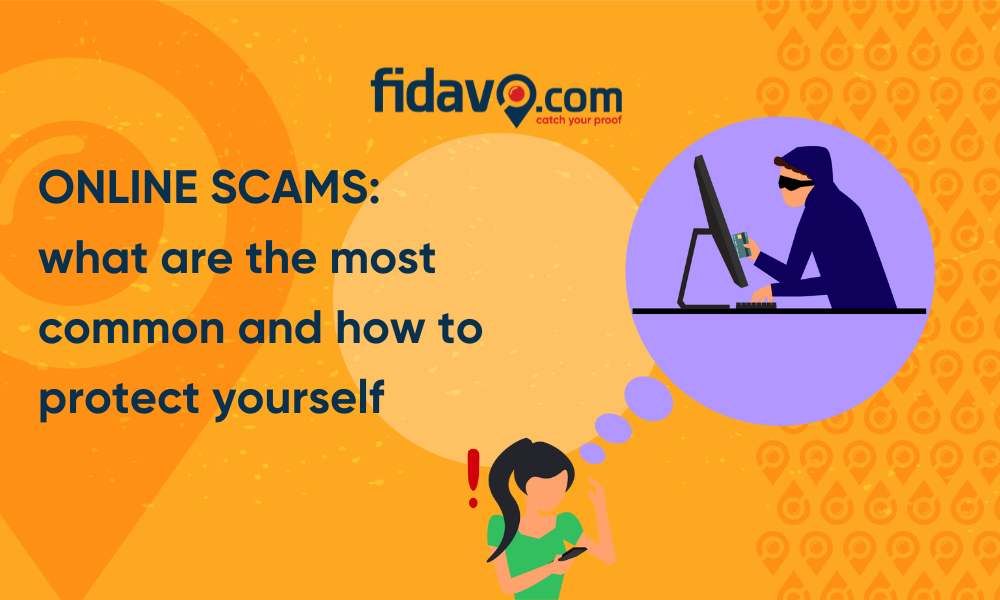Online scams: what are the most common and how to protect yourself

Online scams are an increasingly common reality and affect various users regardless of age, background, browsing habits, and computer skills.
Even the most experienced are not immune to such experiences and sometimes find themselves with unpleasant surprises.
Below, we will provide you with an overview of the topic and tips to solve the problem, often related to electronic fraud.
What is meant by online scams
According to Article 640 of the Penal Code, whoever commits this crime gains a benefit (personal or on behalf of others) from the victim through deception.
To talk about virtual scams, we need to identify the following 5 elements:
- deception
- artifice
- induction into error
- unjust profit
- damage.
With the first, jurisprudence identifies the actions plotted to make this modus operandi effective, while with the second, an alteration of reality intended to confuse the target.
Induction into error, on the other hand, is carried out through arguments and other effective means aimed at convincing the victim.
In this way, the scammer gains an economic advantage (unjust profit). The person who suffers the loss (emerging damage) will also have to deal with a missed gain if they had put a good or service up for sale.
Are scams and telematic frauds the same?
No: while a scam exploits the vulnerability of the person, in computer fraud the target is a device with an active data connection.
In this case, the criminal can act with unauthorized access to data, programs, and anything else contained in the operating system or by altering the functioning of smartphones, tablets, and computers.
In any case, we will use the expression online fraud to refer to scams on the internet.
Most common online scams
The spread of commerce and traffic on the internet has made the virtual world a fertile ground for this type of crime.
Here are the most common types of scams you might encounter:
- ads for non-existent holiday homes
- purchases on unauthorized websites
- packages to be released
- consent to activate a service through a recorded conversation and subsequently edited (yes scam)
- attempts to deposit money into the victim's bank account by strangers (known as the difference scam, which can be considered money laundering)
- requests for bank transfers or recharges from supposed relatives
- email blackmail with ransom demands.
Realities like SMS and email spoofing, phishing, fake vouchers and discount codes, vishing (requests for codes from people pretending to be your bank's operators) are not included in this list. These, in fact, share many characteristics of scams but are aimed at computer fraud.
How to recognize an online scam
You often have clues at hand to identify if you are facing an attempt at an online scam.
First of all, check the reliability of the payment methods (beware of private users who ask you to pay by bank transfer), the URL, and for brands, the originality of the logo.
Also, pay attention to pages without a secure connection (indicated by a padlock in the browser bar) and text content, usually containing errors and inconsistent information. The same goes for photos, downloaded without authorization or unclear and of low resolution in the case of sales proposals.
Prices that are too low compared to the market average are another red flag, as is an unavailable customer care. Questions that are too personal, lack of common contacts, and tags on social networks could finally identify a fake profile.
How to protect yourself from online scams
We recommend prevention as the first method of protection.
In addition to not sharing personal data, not accepting dirty money, and researching experiences similar to yours, you can use tools to check URLs, links, and the origin of images.
If relatives, friends, or companies contact you from different numbers than usual, it is useful to make a phone call to clear up doubts.
If the damage is already done, report the incident to the authorities (primarily the Postal Police) and, when the scammer pretends to be a company, a business, or a person you know, inform the relevant parties.
How a specialized investigator can help you
An investigative agency can provide you with the necessary support whether the virtual scam has succeeded or not.
The private detective can conduct investigations within the limits established by the law and using legal tools.
By gathering evidence, the investigator can prepare a detailed report to be brought to court.
Only a professional specialized in the field can help you identify the perpetrator of the crime and prevent the case from being archived, an occurrence that is far from rare.
 EN
EN  IT
IT 